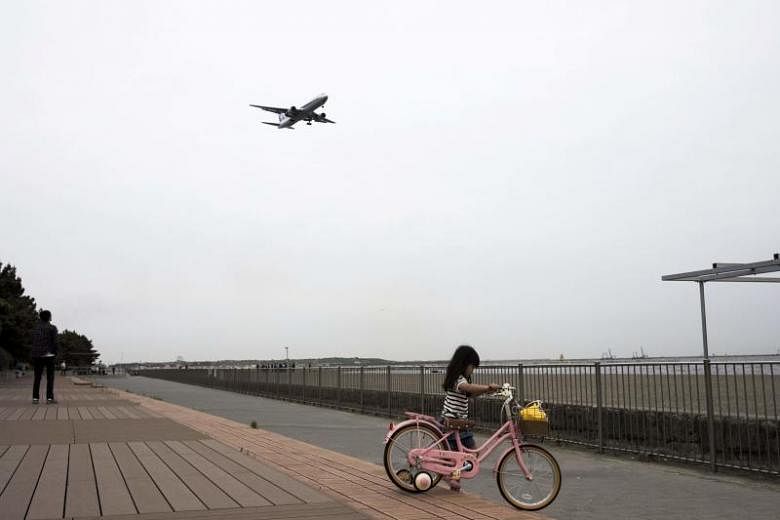(NYTIMES) - Recently, an unaccompanied 15-year-old travelling from London to meet his grandparents in France was bumped from an oversold easyJet flight and essentially treated as an adult, left to deal with rebooking on his own, according to a report by the BBC.
Though the episode ended with the boy taking a flight 10 hours later, it shows a weakness in a system intended to care for children unaccustomed to advocating for themselves.
Experts emphasise the importance of educating children before their trip.
"Even if it's an older teen flying to soccer camp, he needs to learn to speak up and explain that he is 16 and on his own and can't be stranded in an airport," said Ms Eileen Ogintz, who has the syndicated column and website Taking The Kids. "Play the what-if game. What if you are cancelled? What if you are diverted? What if you are stranded?"
Even when children are adequately prepared, the protocol for flying solo is not uniform. As there are no federal Transportation Department regulations for unaccompanied minors, airlines create their own policies, beginning with who can fly.
Here are guidelines established by various airlines and tips for preparing your child for travelling without an adult.
Airline Requirements
Many American carriers offer services for children designated solo fliers, including select seats and escorts on and off the plane and to connecting gates.
Most airlines consider solo fliers from ages five to 15 as unaccompanied minors, though Southwest Airlines puts the upper limit at 11 and JetBlue Airways at 13.
American Airlines and Delta Air Lines make the designation optional for children 15 to 17. (For those ages, parents can let the kids fly without designating them unaccompanied minors and forfeit the additional care.)
It is optional on Alaska Airlines for passengers 13 to 17.
Additional fees also vary. It costs US$25 (S$43) each way for direct flights on Alaska and US$50 for one-way flights involving connections. Southwest charges US$50; JetBlue, US$100 one way; and American, Delta and United Airlines all charge US$150 each way.
Different fees may apply to children travelling together. American charges one unaccompanied minor fee for parties of two or more, and Delta charges one fee for up to four children.
For those fees, children usually get a seat near the front. Airline agents escort minors on and off the plane, and to connecting gates.
Not all flights are available to children travelling alone. Many carriers limit younger children to non-stop or direct flights.
Delta allows eight- to 14-year-olds to make connections, aided by an employee. American allows connections with an escort between flights at several of its busier airports.
Parental Considerations
At the check-in desk, parents with government-issued identification can obtain a pass that allows them to escort the minor to the gate. Some airlines require them to stay at the airport until the plane has taken off and most experts advise doing so in case there is a delay or problem.
On arrival, most airlines will issue a gate pass to the person designated to pick up the minor, allowing that person to meet the child at the gate.
To better track solo minors, Delta has instituted a system that relies on bar-coded wristbands that are scanned at various way points. The airline has said it intends to make that data available to parents and custodians.
Experts recommend parents prepare children as they would themselves, including sending them off with identification such as a birth certificate or a passport. Pack a water bottle to fill after clearing security; entertainment, such as books or a tablet, with an extra battery booster; a sweater for chilly flights; and food.
"Send the equivalent of a school lunch," said Ms Ogintz. "Chances are, there's not much food."
Before leaving, position the trip as an adventure.
Mr Rainer Jenss, president and founder of the Family Travel Association, a group that advocates travel as educational, suggests involving children in planning flights to make them feel empowered, and accentuating the positives.
"Emphasise how they can now be trusted and how grown up they are," he said. "Talk about how fun flying is. How they can get somewhere so fast without having to go on a long, boring car ride."
Finally, just because children can fly solo does not mean all of them should.
"If they're truly nervous, wait until they're older," said Ms Ogintz. "Or if you're paying US$150 each way in fees, it might make sense to pay for a niece to go with them and fly back."

